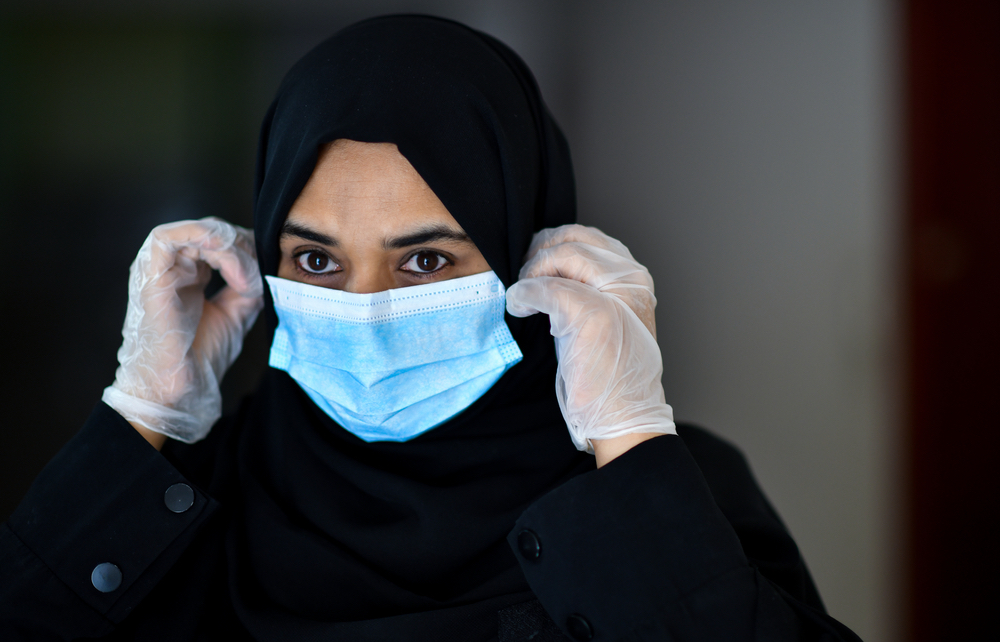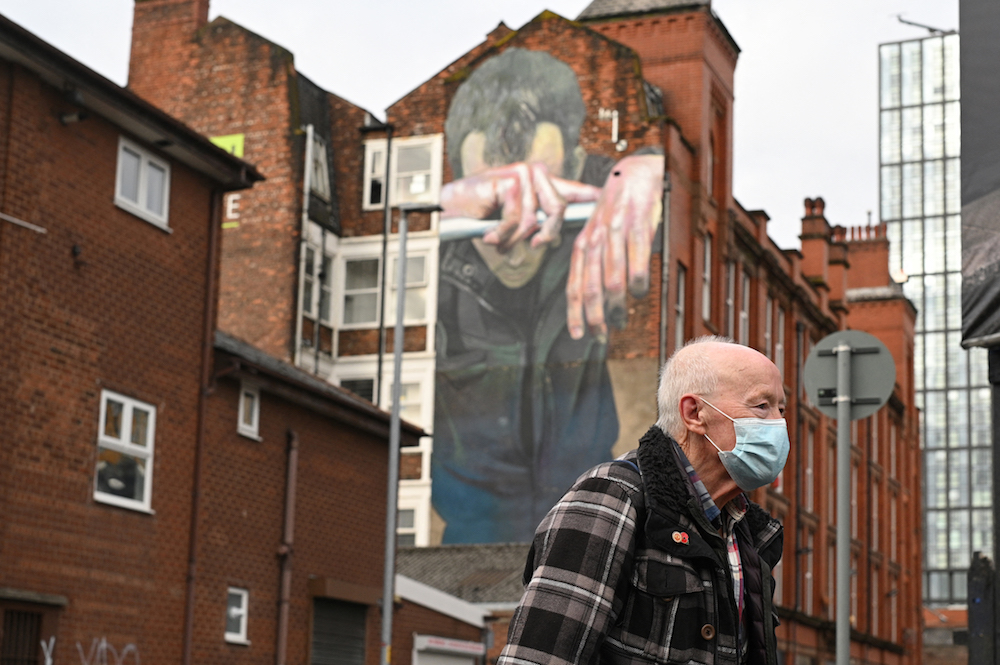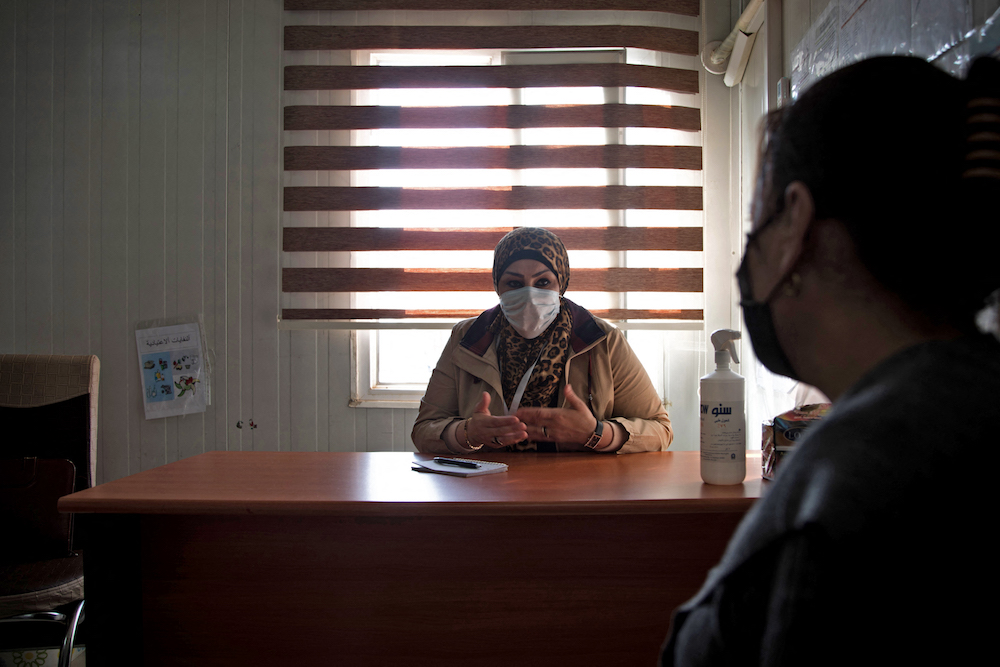DUBAI: Of the Arab world’s many problems exacerbated by the coronavirus pandemic, mental health is easily among the most insidious.
Fortunately, one young Arab has made it his life’s mission to help lead the conversation in the region and address the latent stigma surrounding feelings of depression and anxiety.
The story begins a few years ago when Ally Salama, a 24-year-old Egyptian athlete, moved to Toronto, Canada, to pursue a university degree in entrepreneurship and innovation.
Following a blissful childhood spent in Cairo and Dubai, Salama says, the move led to a dramatic change in his cultural surroundings, which left him feeling isolated and alone.
“I made my first friend four and a half years after attending my first day of university,” he told Arab News.
“It was very hard. We’re very culturally intelligent, but I didn’t want to let go of my values. I could neither mix nor mingle. As a result, I lost my identity and my mind in a year and a half. I felt completely different physically, mentally and psychologically. It caused a lot of issues for me in university.”
Depression quickly set in. He recalls not being able to get out of bed or managing to take care of his basic psychological needs.

The estimated annual global economic cost of mental health disorders stands at $2.5 trillion. (Shutterstock/File Photo)
“Smoking and drinking weren’t my thing, which is what created the biggest gap in university life,” he said.
After reluctantly seeking help from his university counsellor, Salama found the tools he needed to cope, and has since sought to help others.
“It takes a lot for a man to admit that,” Salama said. “It’s very difficult, and I’m here to make that awareness very visible. I didn’t have someone who’d been through this to tell me it was OK. That’s when I realized there are so many people who feel like me but who don’t have the courage to go through with it.”
His healing journey changed the way he views human strength — no longer in terms of physical fitness alone, but rather as a combination of physical and mental.
So when a university project came along about entrepreneurial problem solving, he used the opportunity to launch an online platform called Break the Silence Egypt.
Overnight, 180 people anonymously submitted testimonies revealing their deepest and darkest feelings, in English and Arabic. “It made me realize this is bigger than me,” Salama said. “Mental health is an issue.”

A man wearing a facemask walks past a mural painted as part of the Cities of Hope festival in Manchester and highlighting the effects of mental health as the number of cases of the novel coronavirus COVID-19 rises in 2020. (AFP/File Photo)
Upon graduating in 2019, he did a short stint as a banker in Canada before realizing he was sitting on the wrong side of the desk.
In parallel, he developed a mental health magazine for the Middle East called EMPWR. The first issue came out in March 2019, during his final year of university.
In July that year, Salama’s mentor Dr. Nasser Loza, president-elect of the World Federation for Mental Health and a World Health Organization consultant, recommended him to speak at a UN workshop in Sharm El-Sheikh on the role of media in destigmatizing mental-health issues.
“I spoke about people’s perceptions and why the media’s work hinders people’s quality of life,” Salama recalled.
“That experience changed my life. Depression and mental illnesses aren’t rational — you don’t even want to get better. It’s irrational.”
Mental HealthIn Numbers
* $2.5 trillion - Estimated annual global economic cost of mental health disorders.
* 38% - Percentage of Arabs who know someone suffering from mental-health issues.
* 56% - Percentage of Arabs who say quality mental-health care is difficult to access.
* 48% - Percentage of Arabs who say seeking mental-health care is viewed negatively in their country.
Source: Arab Youth Survey 2020, WHO
It was only a matter of time before EMPWR became a leading mental-health magazine in the region, from its base in Canada.
“The biggest issue with Arabs is that no matter how much they read online (about psychological issues), it’s not culturally relevant to our relationships, our marriages, our cultures, our homes and our thoughts,” Salama said.
“A big thing about success in psychological support is having a rapport with the person in front of you and understanding where they’re coming from. I understood because of my experience.”
Soon the project expanded into podcasting with the launch of Empathy Always Wins. “Podcasting is quite educational — 70 percent of listeners have a higher education degree,” Salama said.
“We got New York Times bestselling authors, the world’s No. 1 squash player, and businessmen who people really respect, to speak.”
With over 100,000 downloads last year and a rank in Harvard’s top seven social initiatives in 2019, the podcast’s success led Salama to launch the Art of Podcasting School with Microsoft for Start-Ups.
He describes his podcast as an all-inclusive, uninhibited exploration of personal vulnerabilities, with the aim of making the ability to share and understand one another’s feelings a sign of strength.
“Empathy is the key winning component for every man and woman,” he said. “Empathy always wins in life.”

Bayda Othman, a psychologist from the NGO Premiere Urgence, consults a patient at the mental health centre of the Bajet Kandala camp for displaced Yazidis near Dohuk, 430 kilometres (260 miles) northwest of the Iraqi capital, by the border with Syria, on November 18, 2020. (AFP/File Photo)
Although the magazine’s content is English-only right now, Salama plans to launch an Arabic version soon. And there certainly seems to be an appetite for the subject.
When he began posting on his Instagram account in Arabic as well as English, he saw his following jump from 5,000 to 73,000 in just six months.
“There’s a need for faces to be vulnerable — people connect with people, not with logos,” he said, describing the positive role of influencers and ambassadors like himself. “This is how you get the message across. People need to be vulnerable to lead.”
Today, Salama is working closely with schools, universities and corporations to help them kick-start programs around mental health.
So far, 40 schools in Canada have benefited, along with Microsoft, the Capital Club and Heriot-Watt University in Dubai.
“It’s about awareness and empowering other people to seek that help,” Salama said. “I’m just an enabler. But it’s my biggest passion when I speak to young children. The more shame, guilt and burden we carry, the more psychologically disturbed, distressed and traumatic we live our lives.”
Now he wants to bring the same message to the Middle East, where he believes millions can benefit from his experience. He wants every Arab home to be discussing mental health and wellbeing.
For younger Arabs, he feels the time has come to tackle such issues, especially as life has become increasingly unsettled in the wake of the pandemic.

With no let-up in COVID-19 infections in many countries, a steady uptick in distressing news and statistics, and unprecedented challenges at home and in the workplace, it is only natural that people are feeling overwhelmed. (Shutterstock/File Photo)
“Whether you like it or not, you won’t feel at peace at any point because we’re being bombarded, which can cause stress,” Salama said.
With no let-up in COVID-19 infections in many countries, a steady uptick in distressing news and statistics, and unprecedented challenges at home and in the workplace, it is only natural that people are feeling overwhelmed, anxious and stressed.
Experts say there are many ways to maintain a good mental balance during these uncertain times.
Among them are the benefits of establishing a good routine, focusing on the things you can control such as exercise and healthy eating, keeping living spaces tidy and limiting news consumption.
“People are feeling so alone, especially during COVID-19, more than ever,” Salama said. For him, taking good care of one’s mental health is the same as stretching before a workout to prevent physical injury.
“We don’t wait until we get injured in sports to warm up,” he said. “We warm up so we perform at our best.”
--------------------
Twitter: @CalineMalek
















